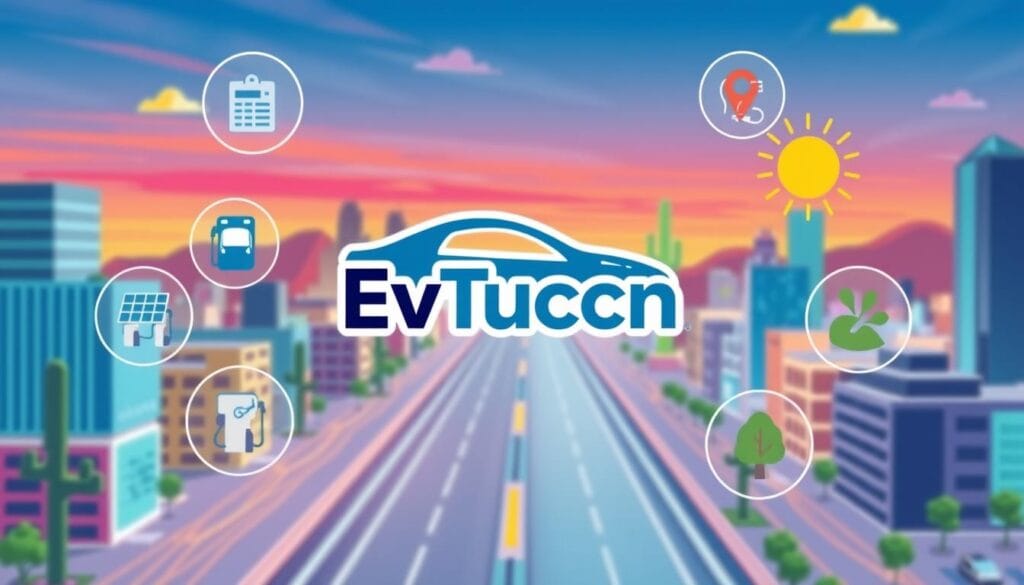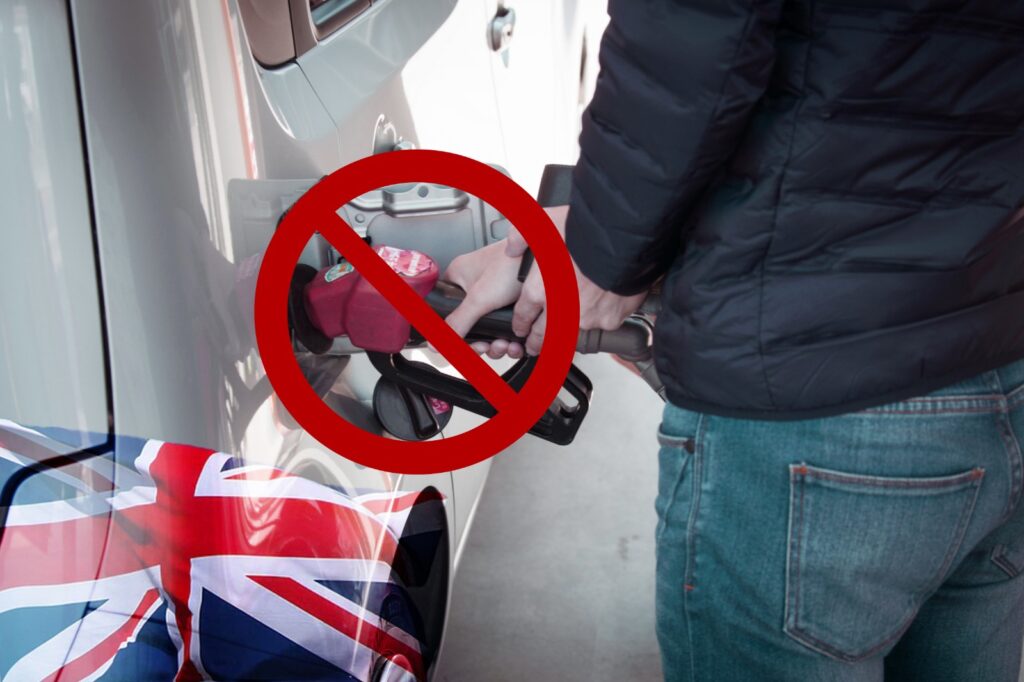Did you know over 40% of electric vehicles on the road today were registered in the last 3 years1? The rise in electric cars means registering your EV is now key. It’s not just about following the law; it also opens doors to state incentives and perks1.
Whether you own a Tesla, Nissan Leaf, or another electric car, knowing the EV registration process is vital. This guide will help you understand what documents you need and the specific rules in your state1.
Understanding Electric Vehicle Registration
Electric vehicle (EV) registration is the formal process of documenting EV ownership with state authorities. This process is necessary for legal compliance, road safety, vehicle identification, and taxation purposes2.
Why Register Your Electric Vehicle?
Registering your electric vehicle is important for several reasons. It ensures legal compliance, allows you to access incentives like high-occupancy vehicle (HOV) lane use, contributes to infrastructure funding, and may even qualify you for potential tax credits2. Many states offer perks for registered EV owners, such as discounts on toll roads or reduced registration fees3.
Benefits of Registering Your EV
- Ensures legal compliance for driving your electric vehicle on public roads
- Grants access to incentives like HOV lane use, which can save you time during your commute
- Contributes to the funding of electric vehicle infrastructure development2
- Qualifies you for potential tax credits or other state-level financial incentives3
- Allows you to take advantage of perks like discounted toll road fees or reduced registration costs3
By registering your electric vehicle, you not only fulfill your legal obligations but also contribute to the growth and support of the EV ecosystem in your state2. This helps drive the adoption of plug-in hybrid and zero-emission vehicles, ultimately benefiting the environment and your local community2.
Requirements for Electric Vehicle Registration
Registering your eco-friendly electric vehicle (EV) requires several key steps and documents. The process may differ slightly in each state. But, there are common steps to know when getting your green vehicle licensed4.
Typical Documentation Needed
You’ll need to show your ID, like a driver’s license or state ID. You’ll also need the vehicle’s bill of sale, a title application, and insurance details. Plus, proof that your EV meets emission standards4.
State-Specific Requirements
Some states have their own rules for EV registration. For example, they might ask for special EV license plates or decals. This shows your vehicle is eco-friendly4.
Fees Associated with Registration
The cost to register your EV varies by state. The basic fee is usually between $35 and $100. But, some states add extra fees, like an EV surcharge ($5 to $250) or an annual fee ($50 to $200) to replace lost gas tax4. You might also face a title fee ($15 to $50) and local fees, adding to the total cost5.
| EV-Specific Fees | Details |
|---|---|
| Texas Annual Fee | $200 as of 20234 |
| California EV Fee | $25 to $175 per year based on vehicle value4 |
Knowing the typical documents, state-specific rules, and fees helps EV owners prepare. This makes the registration process smoother45.
Step-by-Step Guide to Registering Your EV
Registering your electric vehicle (EV) is key to using it. Follow this guide for a smooth process:
Gather Necessary Documentation
First, collect all needed documents for EV registration. You’ll need proof of ownership, a driver’s license, insurance, and a VIN inspection if your state requires it6.
Complete the Application Form
Then, fill out the EV registration form from your state’s DMV. It will ask for your info, your vehicle’s details, and how you plan to use it. Make sure to check everything carefully.
Submit Your Application
After you have all your documents and the form filled out, submit it. You can do this online, by mail, or in person at your local DMV. You might need to pay fees at this time7.
The time it takes to register can vary. Some states are quick, while others take longer. You might get updates or need more info from the DMV8.
By following this guide, you’ll complete your sustainable transportation paperwork and alternative fuel vehicle registration quickly. This lets you enjoy your electric vehicle without hassle.
Important Considerations Before Registering
Before you start the electric vehicle (EV) registration process, there are a few things to think about. Make sure your EV purchase documents are valid. This is because your state’s rules for registration can be different9. Also, knowing your local laws is key, as some places have special rules for EVs9.
Validity of Your EV Purchase Documents
Check that all your EV purchase papers, like the bill of sale and title, are current and correct. This makes the registration process easier and avoids any problems.
Understanding Local Regulations
Look into your state or local area’s EV registration rules. Some places have special taxes or breaks for EVs10. For example, in Michigan, the tax for motor vehicles depends on the vehicle’s weight. It ranges from $29.00 for 0 to 3,000 pounds to $95.00 for 9,501 to 10,000 pounds10.
Emission Standards and Compliance
Even though EVs don’t need emissions tests, some states might ask for proof that your vehicle meets emissions standards9. Make sure you know what your state requires in this area9.
By thinking about these key points before registering your EV, you can make the process easy and quick. This helps you smoothly move into owning a clean energy car.
Where to Register Your Electric Vehicle
Registering your electric vehicle (EV) is easy, with many options available. You can choose online registration or visit in person. It’s important to know about the different ways to register and what your state’s DMV can do for you11.
Online Registration Options
Many states let you register your EV online through their DMV websites. This is quick and easy for renewals or transfers. But, first-time registrations might need a visit to the DMV or county office11.
In-Person Registration Locations
If you like a hands-on approach or it’s your first time, you’ll need to go in person. DMV or county offices can help with the application, plates, and EV decals11.
State DMV Offices and Their Functions
DMV offices are key for EV registration. They handle registration, title transfers, and plates. Some states even offer special EV plates online or at county offices11.
| State | EV Registration Fees | Additional Considerations |
|---|---|---|
| Colorado | $57.19 plus inflation per year11 | EV decals available at county offices, eventually through myDMV11 |
| Texas | $200 annual fee4 | Fees based on market value, ranging from $25 to $175 per year4 |
| California | Fees based on market value, ranging from $25 to $175 per year4 | Emissions testing exemption for EVs4 |
| Ohio | $200 per registration year for EVs, $100 for hybrids, $150 for plug-in hybrids12 | Fuel type fees apply to vehicles 2009 or newer, prorated based on registration period12 |
Understanding your EV registration options and what your state’s DMV does can help. Whether online or in person, being ready with the right documents and knowing your state’s rules makes the process smoother11412.
Special Programs for Electric Vehicle Owners
More people are choosing electric vehicles (EVs) every day. States and utility companies are offering special programs to help. These include big incentives, tax credits, and rebates that lower the cost of EVs.
Incentives Offered by States
States like California and New York are big supporters of EVs. California gives rebates of $1,000 to $7,000 for new EVs13. New York even offers free registration for EVs for a year13.
Tax Credits and Deductions
The federal government also offers tax credits for EVs. These can be up to $7,500, helping buyers save a lot13. Some states add their own tax credits or deductions, making EVs even more appealing.
Utility Company Rebates
Utility companies are also helping EV owners. For example, SRP in Arizona wants to support 500,000 EVs by 203514. They offer a $250 rebate for Level 2 home charging stations14. SRP’s Electric Vehicle Price Plan also helps with daily charging costs, starting at $0.70 per day14.
These programs, along with the growing affordability and performance of EVs, make switching to electric easier than ever.

Tips for a Smooth Registration Process
Registering your eco-friendly electric vehicle is key to following green vehicle licensing rules. To make it easy, check your documents well, book appointments if needed, and save all your papers15.
Double-Check Your Documentation
Before you apply, go over your documents carefully. Make sure you have your vehicle title, insurance proof, and any state forms or emissions tests. This step can prevent delays or problems16.
Schedule an Appointment if Required
Some DMV offices need you to book an appointment for electric vehicle registration. Plan ahead and book early to avoid any hitches16.
Keep Copies of All Submissions
Keep all your documents safe by saving copies. This includes application forms, receipts, and any DMV letters. It helps if you need to go back or need more info15.
| Tip | Key Benefit |
|---|---|
| Double-check documentation | Avoid delays and rejections |
| Schedule appointments in advance | Ensure a timely registration process |
| Keep copies of all submissions | Maintain a comprehensive paper trail |
By using these tips, you can make your electric vehicle registration smooth. This supports your eco-friendly car documentation needs151617.
Common Mistakes to Avoid During Registration
Registering your electric vehicle (EV) is usually easy, but watch out for common mistakes. Forgetting to sign application forms is a big one18. Also, filling out paperwork wrong can slow down your application or even reject it18. And, missing deadlines can lead to extra fees and penalties18.
Forgetting Required Signatures
Make sure you sign and date all needed forms for EV registration. Not doing this can delay your application a lot. You might have to resubmit, wasting more time and effort.
Wrongly Filled Application Forms
Check your EV registration application carefully before you send it in. Make sure you’ve filled out everything right. This includes your vehicle and personal details, and any fees. Mistakes can slow down your registration or even stop it.
Ignoring Deadlines
Remember the deadlines for EV registration in your state18. If you miss them, you’ll face late fees and penalties. Know your state’s rules and deadlines to avoid these problems.
By avoiding these mistakes, you can make your EV registration go smoothly. 
What to Do After Registration
Congratulations on registering your clean energy automobile! Now, you need to get your registration certificate, put on your license plate, and follow renewal rules. These steps are key to keep your electric vehicle (EV) legal in Pennsylvania.
Receiving Your Registration Certificate
After you register your EV, you’ll get your official registration certificate from the state19. This document proves your vehicle is registered legally. Keep it safe, as you might need it when dealing with the police or state offices.
Installing Your License Plate
You might get special EV plates or need to add an EV decal to your regular plates20. Follow the instructions to install your plates. Make sure they’re visible and securely on your vehicle.
Staying Compliant with Renewals
In most states, including Pennsylvania, EVs need annual registration renewal20. Keep track of renewal dates to avoid fines. Many states offer online or mail-in renewal to make it easier.
By following these steps, you can drive your EV legally and stay in line with state rules. Remember, registering your EV is just the beginning of your clean energy journey.
Resources for Electric Vehicle Owners
As an EV owner, you have many resources to help you. You can find information on registration, rules, and connect with others. Websites, forums, and associations offer support and answers for your EV journey.
National and State EV Associations
Groups like the21 California Electric Transportation Coalition (CalETC) and the Electric Vehicle Association of America (EVAA) are great. They share info on EV incentives, rules, and tips. They help with22 battery car registration and EV title transfer.
Official DMV Websites
For the latest on EV registration, check your state’s DMV website. They have forms, instructions, and22 EV registration needs for your area.
Online Forums and Communities
Online forums and communities are a big help. They offer support, advice, and experiences from other EV owners23. Sites like Gov2Go can also help with fees and registration, making owning an EV easier.


